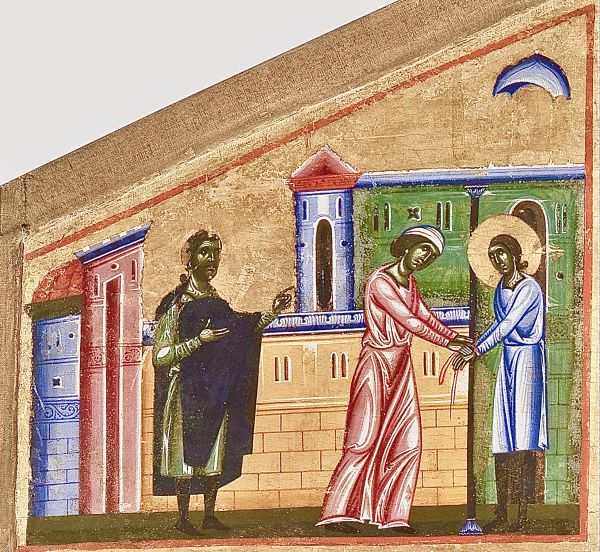Today's Gospel passage portrays Jesus going, almost covertly, to the Feast of Booths, in a persecutory atmosphere.
He does not go at the time that seemed opportune to his relatives, nor does he intend to manifest himself in the way they wanted.
Instead, he goes up there afterwards, and in a different way: to fulfil his mission as set by God, not to seek his own glory.
Francis, too, did not follow the path his father wanted, but the mission entrusted to him by the Lord, according to the 'canvas' of divine will.
In fact, consulting the Sources, we understand many things in this regard.
For example, we become aware of the obstinate persecution of the father, who could not bear Francis' repudiation of his previous life, spent in merry bandits.
He wanted his son to live another way, far from God's plans as he was.
"While the servant of God was dwelling in the company of this priest, his father heard about it and ran there with a distraught soul.
But Francis, an athlete still in his infancy, having been informed of the threats of the persecutors and foretelling of their coming, wanted to leave time for wrath and hid himself in a secret pit.
He remained hidden there for a few days, and in the meantime he unceasingly supplicated, amidst rivers of tears, to the Lord, that He would deliver him from the hands of the persecutors and bring to fulfilment, with His goodness and favour, the pious intentions He had inspired in him" (FF 1040).
The Poverello was not concerned to please his parental prerogatives, but the project and mission prepared by God, even in the vituperation of the city of Assisi.
"The citizens of Assisi, seeing him squalid in the face and changed in spirit, thought he had lost his mind, and threw mud and stones from the streets at him, and, shouting and clamouring, insulted him as a madman, a demented person.
But the servant of God, without being discouraged or upset by the insults, passed among them, as if he were deaf.
When his father heard that strange racket, he rushed immediately, not to free his son, but rather to ruin him: putting aside all feeling of pity, he dragged him home and persecuted him, first with words and beatings, then by putting him in chains.
But this experience made the young man more ready and more determined to complete the task he had begun, because it reminded him of that saying in the Gospel:
«Blessed are those who are persecuted for the sake of justice, for theirs is the kingdom of heaven» (FF 1041).
Even so, the Minim of Assisi, like Jesus, did not want to serve what common opinion considered opportune and convenient to do.
He preferred to follow, in another way, what Providence had revealed to him and in a manner that was disconcerting for the mentality of the world in which he lived.
His family, his fellow citizens knew Francis, but they did not understand that he was a beloved son of the heavenly Father.
A creature who had been entrusted with an unequivocal mission of renewal in the Christian walk.
«[Of course] you know me and you know where I am from. Yet I came not of myself, but he is true who sent me, whom you do not know. I know him, because I am from him and he has sent me» (Jn 7:28-29)
Friday 4th wk. in Lent (Jn 7:1-2.10.25-30)












